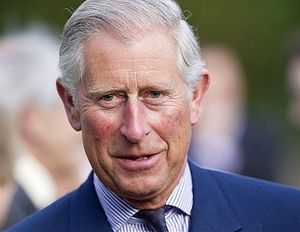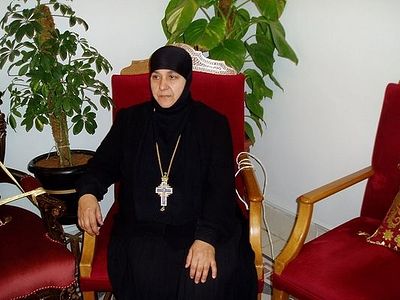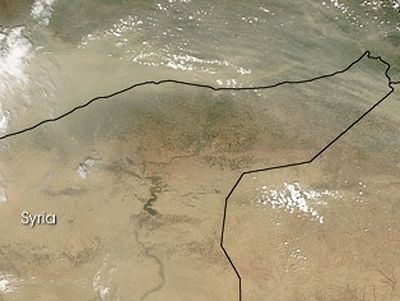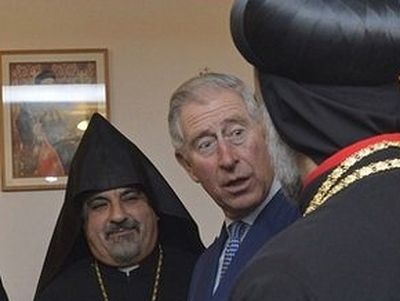SOURCE: Frontpagemag.com
By Majid Rafizadeh
Dubbed by the media as an “Arab Spring” or “Arab Awakening,” these events in the Middle East must be reexamined, as they more closely represent a “Tragedy for Minorities” rather than the democratic rebirth that the former names seem to describe.
This campaign to persecute minorities— particularly Christians in Muslim countries that have gone through uprisings or revolution like Egypt, Tunisia, Syria, Libya, and Yemen— have increased in the Middle East. Currently, Islamist parties are ruling the state, or are operating separately from the government, to implement their ideology throughout the region, serving their materialistic and political goals.
The number of Christian is shrinking significantly in the predominantly Muslim societies of the region, to almost a mere 4 percent of the population. Even though Christianity was born in this region, many Christians who see these nations as their homeland are being forced to leave. This raises the question as to whether the Islamist agenda is to wipe out all the minorities in this region, making an Islamic world with Christians disappearing, leaving a unified Muslim region under the rule of Allah, and gaining geopolitical and materialistic interests.
The situation is so tragic that even political figures and Western governments that attempt to be very cautious about their comments on Islam were not capable of denying the severity of the situation any longer. This week, Prince Charles emphasized that the campaign of persecution by extremist Muslims and fundamentalist Islamists is leading to the disappearance of Christianity in the Middle East. According to The Blaze, Prince Charles stated, “It seems to me that we cannot ignore the fact that Christians in the Middle East are increasingly being deliberately targeted by fundamentalist Islamist militants.” The British royal also made these remarks and comments to various religious leaders.
The intensity of the kidnappings, murders, and persecutions of minorities, particularly Christians, is higher in countries such as Iraq, Syria, and Egypt. Prince Charles also added in The Telegraph that, “Christianity was literally born in the Middle East and we must not forget our Middle Eastern brothers and sisters in Christ. … Yet today the Middle East and North Africa has the lowest concentration of Christians in the world – just 4 percent of the population, and it is clear that the Christian population has dropped dramatically over the last century and is falling still further.”
In addition, the Prince of Wales stated that several strategies and tactics such as “intimidation, false accusation and organized persecution” are being utilized in a systematic campaign to force out the Christians, creating an exodus of Christians and other minorities from the region, according to The Telegraph. Furthermore, he warned that in case this systematic persecution by Islamists, extremists, and fundamentalists in Muslim societies did not halt, then “we [will] all lose something immensely and irreplaceably precious when such a rich tradition dating back 2,000 years begins to disappear.”
In such cases, when minorities like the Christians and Jewish people of the Middle East are forced out of their homes, their belongings are oftentimes confiscated by Islamists groups (or the state) and distributed among themselves. When I used to live in Syria, in a neighborhood which used to be called Share Alyahood (Jewish Street), many of the houses of the Jewish people— who were forced into exile and out of the country— were being used by the government forces. The owners were not allowed to return to their homeland.
Repeated rapes, instances of torture, kidnappings, and the slaughter of Christians are only some of the methods used by the rising Islamists in the Middle East to force Christians out, frightening them or forcing them into Islamic conversion.
But why is there such hatred towards Christians in the region? The persecution of Christians is not implemented because they are part of any militant or political group, or because they are attempting to overthrow the ruling party. The persecution is conducted because of their faith, due to their personal beliefs and religious practices. Several polls have shown that Middle East and particularly the predominantly Muslim societies are the worst places for Christians to live, as these countries are where the most severe persecution takes place towards Christians.
It is confounding to ponder why the mainstream media, President Barack Obama, and many other liberal political figures still remain silent about the increasing persecution of Christians in Islamic countries. These facts are clear; if one can only gather the number of public attacks on Christians (let alone the uncovered attacks) in any given month in the Middle East, the result will be astonishing. For example, in just one month, Muslim Brotherhood loyalists in Egypt burned and attacked more than 73 churches, attacking and burning hundreds of Christian-owned houses, properties, schools, businesses; Syrian rebels attacked the historic Christian city of Maaloula, damaging churches, properties and forcing the Christians out; a church in Peshawar, Pakistan was blown up by Jihadi terrorists, leading to the killings of approximately 89 people and countless injuries.
Though President Obama criticizes and condemns these kind of persecutions against Christians, reports show that Obama is increasingly looking to form an alliance with the Islamists in Syria— as he did with the Muslim Brotherhood in Egypt. The American administration believes that moderates, or the Free Syrian Army, are not a powerful enough force in Syria. Nevertheless, forming such alliances with the Islamists will prompt unbearable consequences for the minorities of the region. President Obama’s moves to get politically closer to the Islamists, and particularly in Syria, Egypt and Tunisia, will further empower and embolden these Islamist groups, legitimizing them and allowing the groups to continue their systematic campaigns against minorities and Christians.




